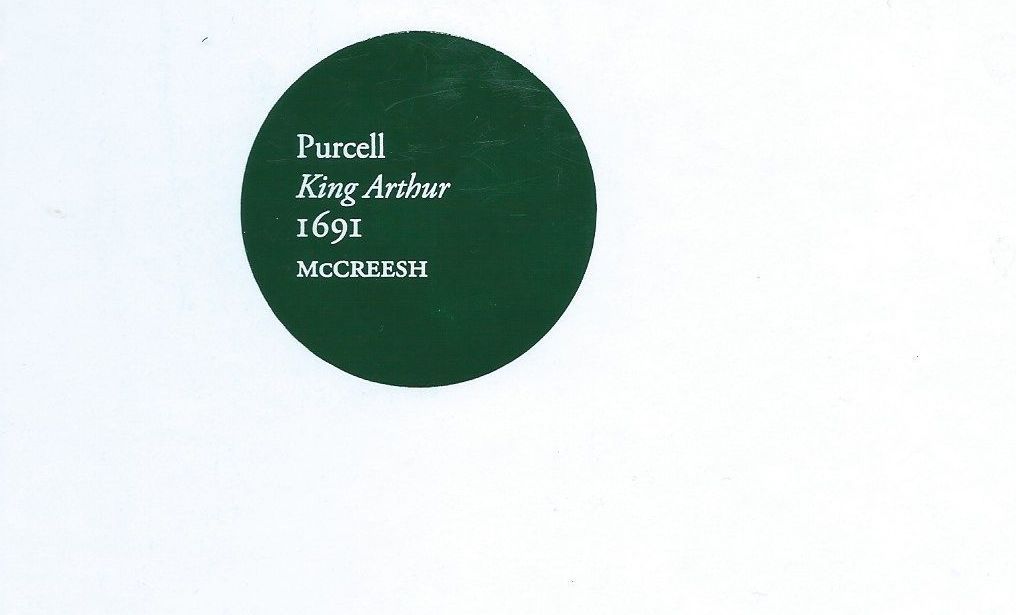After Dido: Purcell's King Arthur

There's a kind of multiple resonance to the title of this post: while Henry Purcell's music for King Arthur (1691) does indeed come after his most famous work, Dido and Aeneas (1680), there's also another aspect: what does one listen to after Dido? Where does it lead? Lots of texts refer to musical links to John Blow's Venus and Adonis (there's a really clear one that involves the final choruses) but if you want to stay within the world of Henry P himself, King Arthur might well be the way to go.
Timely, then, that Paul McCreesh's vital, alive recording of King Arthur should not only be a recent release but also win Record of the Year at the BBC Music Magazine Awards. Purcell wrote King Arthur on a royal commission from King Charles II; the text is by John Dryden, no less.
McCreesh's recording with the Gabrieli Consort and Players magnificently presents the music; shorn from its theatrical trappings, it shines and we enter, instead, the theatre of our own imaginations. The cast reads like a Who's Who of modern British talent: Rowan Pierce, Carolyn Sampson, Roderick Williams and Ashley Riches. The rest of the cast is of just as high a standard, tenor James Way a particular delight. It's also persented in a bespoke edition prepared by McCreesh and Christopher Suckling, adding an extra layer of muscological integrity; the recording quality itself has a beautiful cleanliness that suits the music perfectly.
Carolyn Sampson sings probably the most famous excerpt from King Arthur, "Fairest Isle," on the recording. As a taster (and a treat), here she is at London's beloved Wigmore Hall singing just that:
... although many may agree she is even finer on the McCreesh:
It's always fascinating to compare and contrast different recordings of the same piece; even the same performer's recordings of the same piece, as here; ask yourself which is your favourite and then ask yourself why ...
The presentation of the discs is beautiful, but the real point is that adding Purcell's King Arthur to your Baroque repertoire will increase your enjoyment exponentially; as well as perhaps pointing you in new directions towards John Blow's Venus and Adonis, back to Dido or towards one of Purcell's many verse anthems or odes, or even towards his magnificent chamber music. There's a whole World out there to explore. Why not start with a relatively recent The Fairy Queen (1692/3) with Les Nouvelles Charactères under Sébastien d'Hérin on Glossa, a fabulous performace with a uniformly fine cast?
